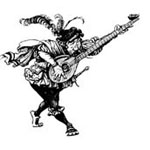
Armchair Heroes
PRAY THAT YOU MAY NOT UNDERGO THE TEST
When we are safe and sound, it is easy to assume that we are potential heroes. Our admiration for the courage of, say, St. Maximilian Kolbe may tempt us to take for granted that our awe for his bravery is a guarantee that we would follow in his footsteps. Life teaches us a great lesson: Our enthusiasm for others’ greatness can easily give us delusions of heroism.
Before Hitler became chancellor of Germany in January 1933, few Germans approved of his “philosophy.” Yet the moment he seized power — and introduced a regime of terror — millions of people kowtowed to him and screamed, “Heil, Hitler!” Were they despicable men? In no way. In fact, history teaches us that the passive acceptance of evil is so widespread that it could be considered a “normal” response. How very few (and I include respectable bishops) had the courage to resist such overwhelming evil, and risk their lives! Those who did — like Bl. Franz Jäggerstätter — were heroes and deserve our love, our admiration, and our gratitude. But let us not assume that the sincerity of our admiration for them reveals a propensity for heroism on our own part.
As desirable as it would have been that all the bishops in Germany, whether Protestant or Catholic, had stood up in unity and said strongly and clearly “No!” to Hitler, this is not what happened. Most of them were very low key. Whether this was called “German patriotism” or “prudence,” one thing is certain: With rare exceptions, their silence was deafening.
It is worth noting that, after the war, many are those who have passed harsh judgments upon the millions of “cowards” who did not oppose Nazism. Yet these critics fail to ask themselves: Had I been in their situation, is it certain that I would have opposed evil, risking the loss of my property, risking the welfare of my family, risking torture and death? Before answering this question positively, we would do well to check our own degree of humility. On what basis do we presume to condemn?
You May Also Enjoy
On Michael Novak's Conversion... Christmas Presents No One Needs... Mormon Missionaries... On Jonathan Edwards
The order and its lay affiliate were banned from certain dioceses and are unwelcome on many Catholic campuses.
The Pen Is Mightier Than the Hammer... 'Dumpster Diving'... Howler... Read This, My Dear Moldweed... From Descartes to Woodstock... Bring Back Curfews... Catholic Schools Are in Danger, Too...

